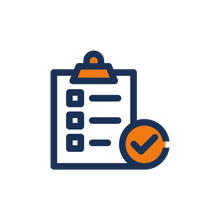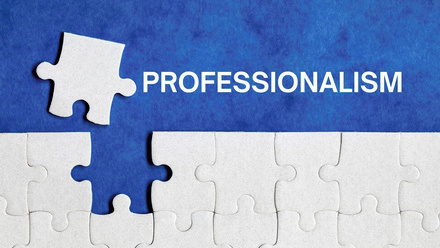CPD conversation: Language skills
We continue our series on CPD categories by investigating ‘language skills’.
Continuing our series on the categories in the ITI CPD logging tool, this time we look at language skills, exploring what this category means to a range of practising professionals. Our contributors this time are German to English translator and ITI board member Fiona Gray, Italian conference interpreter Andrea Alvisi and Clare Suttie of Corporate member Atlas Translations.
What do you understand by CPD for ‘language skills’, as it applies to your own area?
Fiona: For me, it’s about developing my reading, writing, speaking and listening skills in my source language.
Andrea: In my field, I think it’s about working on language skills through things like film, TV and podcasts, as well as targeted interpreting practice.
Clare: I’m thinking of this in terms of our staff at Atlas Translations. As part of our ISO requirements, all staff have to undertake training, and we log this as evidence for the auditor. We actively look for evidence, annually, that translators are undertaking CPD (and recording the courses, reading and research they complete) to maintain their language, subject and translation or interpreting skills.
So what kind of regular CPD do you do in this area?
Fiona: I aim to immerse myself in my source language in any way I can, by reading magazines, books, blog posts and news articles; listening to podcasts and the radio; and watching television series and films. At the same time, I’m also trying to perfect my skills in my target language too, by absorbing as much well-written content as possible.
About a year ago, I decided to finally address my serious lack of confidence in my spoken source language skills. I asked for recommendations on social media and have been meeting a German tutor on Skype for a weekly one-hour conversation class ever since. I used to feel nervous about the session for days beforehand but now I actually look forward to it! The thought of a client call in German doesn’t fill me with dread any more, so it has definitely been worthwhile!
Andrea: I work on my B and C languages by listening to podcasts and watching films and television series in those languages. I subscribe to a good selection of offerings in all of my working languages, and in particular I am a huge fan of podcasts, which I mainly listen to at the gym.
I also do targeted interpreting practice. I am lucky enough to be based in Brussels, where a group of like-minded colleagues regularly runs in-person interpreting practice sessions (Interpreters in Brussels Practice Group (IBPG) – also available online). And finally, about six years ago I started learning Bulgarian from scratch and I continue to have weekly one-to-one lessons with my teacher, usually discussing current affairs.
Clare: Personally, I tend to undertake business- and marketing-related CPD – such as LinkedIn tips, and learning about SEO and Google. I also attend conferences and events focusing on both translation and general business practice.
For my in-house team, we offer a budget for each employee for courses relating to languages and CPD. We look out for training to help the team develop their skills and their careers. Having said that, they don’t need any encouragement, to be honest – they are all language nerds! They also join local networks, particularly according to their language or specialist subject – and it’s worth noting that we appreciate seeing this kind of activity on the CVs of our freelance team too.
What is the most unusual CPD activity you’ve undertaken to develop or maintain your language skills?
Fiona: My German tutor always asks for suggestions for topics of conversation and tries to tailor our sessions so I can get as much out of them as possible. One week, she took on the role of a direct client in need of translation services for her museum website. We discussed the (pretend) potential project and she asked me lots of questions about the translation process.
Andrea: I would probably have to say attending a macaron workshop in Sofia. Of all places, I’m sure Bulgaria wouldn’t be top of your list to learn how to make these delicate French meringues, but it was great to be exposed to a culinary training environment, follow it in Bulgarian and interact with the other participants. All in all it was an excellent opportunity to practise my language and baking skills at the same time!
Clare: I studied British Sign Language for a few years!
Do you have any tips or suggestions for people seeking this type of CPD?
Fiona: Try to focus on the areas that you feel need the most work. I was struggling with my spoken German skills because I never had the opportunity to practise until I started making the effort to make it happen. I would also recommend pushing past any nerves or self-doubt. Don’t be afraid to try new things and explore different ways of working on your language skills.
Andrea: Do what you enjoy and what works for you! The sky is the limit, as they say, and thinking outside the box can be extremely rewarding. Even if something has never been suggested before, who’s to say it can’t be helpful for you? Find interesting opportunities in your fields of interest and expertise, and the rest will follow.
Clare: Remember that you can do very specific CPD in language, subject and translation or interpreting skills but you can also think outside the field of languages and learn about other skills that can help you to develop and grow your business at the same time.
I’d also remind people to include their recent and up-to- date CPD on their CV – it’s surprising how many CVs do not even mention CPD. It’s really important and taken seriously by agencies and direct clients alike.
This article first appeared in the May-June 2022 edition of the ITI Bulletin

Remember to log your CPD using the ITI logging tool. It is quick and easy to use and provides evidence to clients and agencies of your achievements.
When you achieve the annual target of 30 hours you will be awarded a certificate and logo to use on your website and other marketing materials. MITIs and FITIs will automatically have the logo added to their Directory profile.






